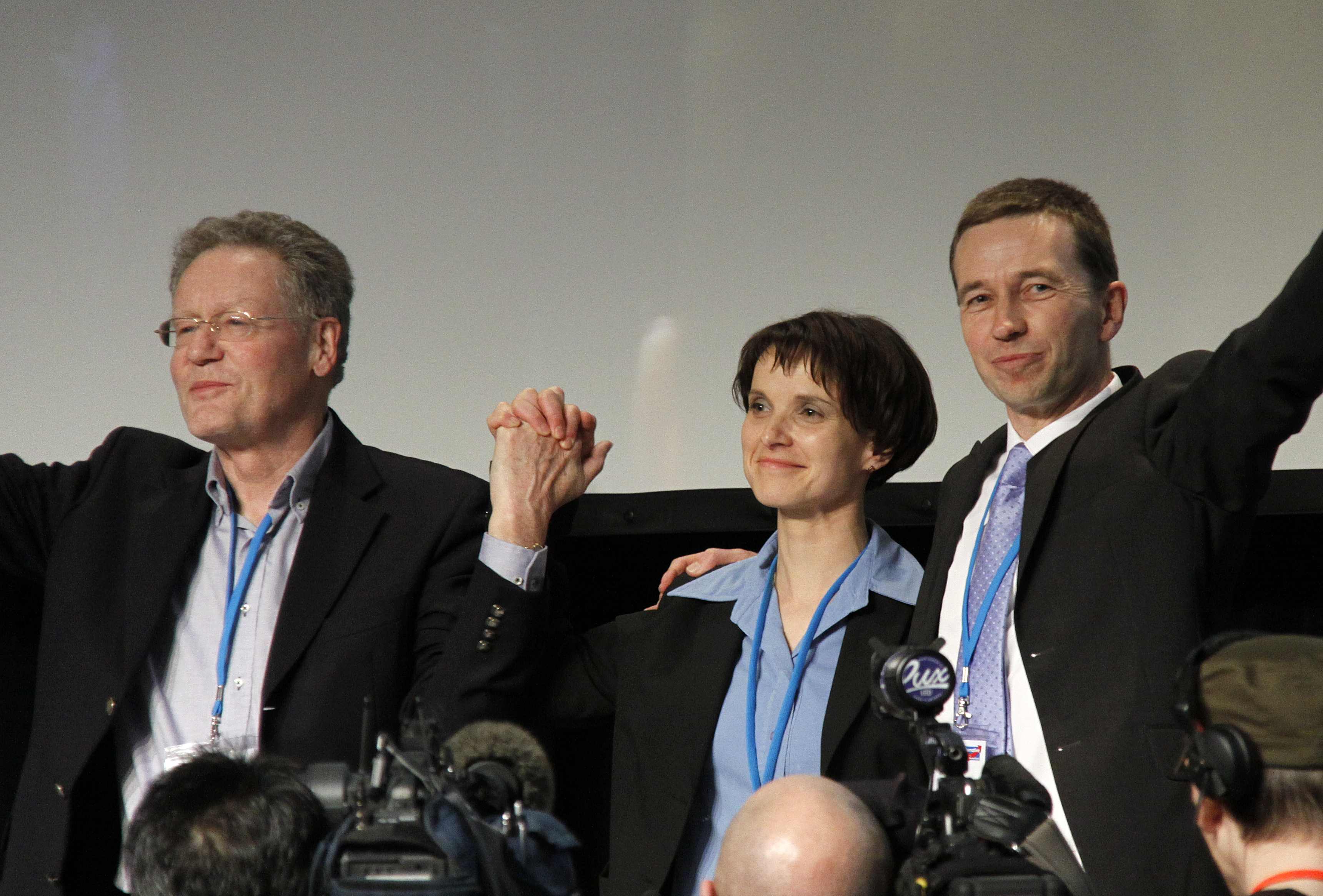An apparent schism is opening in the heart of Europe as Germany’s new Eurosceptic party Alternative for Germany (AfD) is tipped for a breakthrough result today as state election polling stations close in the East German federal freitstaat of Saxony.
The first exit polls show the party to have gained a respectable ten percent share of the vote, well ahead of the five percent threshold required to enter the state parliament.
The party has enjoyed fairly rapid growth since it was founded by former Christian Democrat members in 2013, taking seven seats in the Euro elections and only narrowly missing out on Bundestag seats in last year’s federal election.
The borders of Eastern states Saxony, Thuringia and Brandenburg roughly correspond with the greatest concentrations of AfD support. All three are having state elections within a fortnight of each other, giving AfD an opportunity to build momentum and capture the narrative in Germany, if they are successful in all three.
Although the party has been called Eurosceptic and likened to Britain’s independence movement UKIP and the American Tea-Party, it’s preoccupations and political aims reflect Germany’s unique position in Europe, and the concerns of it’s middle class. In contrast to some other Eurosceptic movements, AfD is not campaigning to leave the European Union but rather to take Germany out of the Euro which it insists is ‘splitting Europe apart’, rather than bringing it closer together.
Germany has long been one of the main driving forces behind the European project, and the emergence of a credible, elected anti-euro force in domestic politics is symptomatic of the stress holding the euro together has placed on ordinary Germans. Germany is the largest net contributor to the European Union budget, and along with the Danish they contribute the largest share per head of population a year.
Being in a currency union with the weaker ‘club med’ countries such as Italy and Greece has robbed Germany of the ability to effectively control their own economy. Many Germans see the seemingly endless EU bailout programmes that sprung up in the wake of the financial crisis as effectively throwing good German money into a bottomless Greek pit. Accordingly, AfD also campaign against bailouts and further transfer of powers to the European Parliament.
Despite their comparatively moderate Euroscepticism, AfD does appear to be strongly socially conservative. According to TheLocal.de, the Saxon party leader has called on German women to have more children, and the party has called for the building of Mosque minarets in Saxony to be subject to referendum.
The youth wing of AfD, the Junge Alternative recently courted controversy by denouncing ‘dusty left-wing ideologies’ like feminism, and promoting traditional family structures.
More German election results to follow.

COMMENTS
Please let us know if you're having issues with commenting.